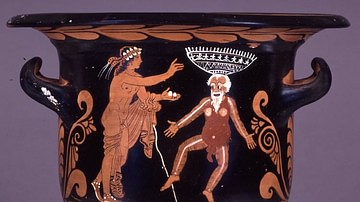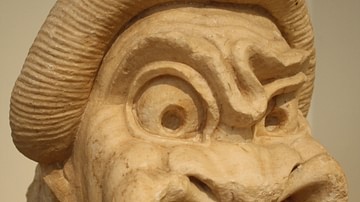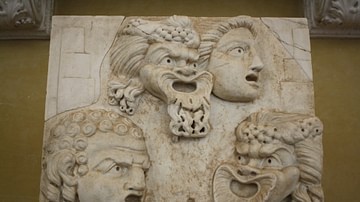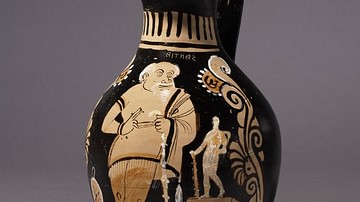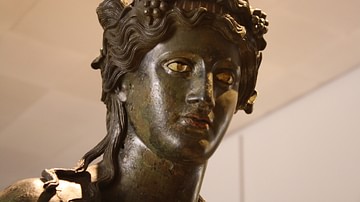Video
About the Author
Cite This Work
APA Style
Macquire, K. (2021, May 07). Ancient Greek Comedy: History, Structure, Aristophanes and Menander. World History Encyclopedia. Retrieved from https://www.worldhistory.org/video/2523/ancient-greek-comedy-history-structure-aristophane/
Chicago Style
Macquire, Kelly. "Ancient Greek Comedy: History, Structure, Aristophanes and Menander." World History Encyclopedia. Last modified May 07, 2021. https://www.worldhistory.org/video/2523/ancient-greek-comedy-history-structure-aristophane/.
MLA Style
Macquire, Kelly. "Ancient Greek Comedy: History, Structure, Aristophanes and Menander." World History Encyclopedia. World History Encyclopedia, 07 May 2021, https://www.worldhistory.org/video/2523/ancient-greek-comedy-history-structure-aristophane/. Web. 16 Apr 2025.


